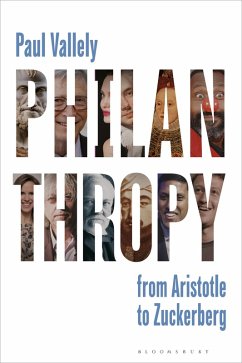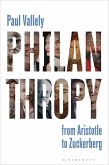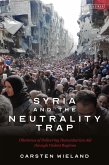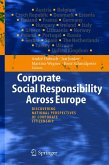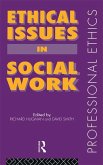'This is the definitive book on philanthropy - its history, contradictions and future' - John Gray, Emeritus Professor of European Thought, London School of Economics
'Good books lay out the lie of the land. Important books change it. This book is both' - Giles Fraser, priest, journalist and broadcaster
The super-rich are silently and secretly shaping our world. In this groundbreaking exploration of historical and contemporary philanthropy, bestselling author Paul Vallely reveals how this far-reaching change came about.
Vivid with anecdote and scholarly insight, this magisterial survey - from the ancient Greeks to today's high-tech geeks - provides an original take on the history of philanthropy. It shows how giving has, variously, been a matter of honour, altruism, religious injunction, political control, moral activism, enlightened self-interest, public good, personal fulfilment and plutocratic manipulation.
Its narrative moves from the Greek man of honour and Roman patron, via the Jewish prophet and Christian scholastic - through the Elizabethan machiavel, Puritan proto-capitalist, Enlightenment activist and Victorian moralist - to the robber-baron philanthropist, the welfare socialist, the celebrity activist and today's wealthy mega-giver. In the process it discovers that philanthropy lost an essential element as it entered the modern era. The book then embarks on a journey to determine where today's philanthropists come closest to recovering that missing dimension.
Philanthropy explores the successes and failures of philanthrocapitalism, examines its claims and contradictions, and asks tough questions of top philanthropists and leading thinkers - among them Richard Branson, Eliza Manningham-Buller, Jonathan Ruffer, David Sainsbury, John Studzinski, Bob Geldof, Naser Haghamed, Lenny Henry, Jonathan Sacks, Rowan Williams, Ngaire Woods, and the presidents of the Rockefeller and Soros foundations, Rajiv Shah and Patrick Gaspard. In extended conversations they explore the relationship between philanthropy and family, faith, society, art, politics, and the creation and distribution of wealth.
Highly engaging and meticulously researched, Paul Vallely's authoritative account of philanthropy then and now critiques the excessive utilitarianism of much modern philanthrocapitalism and points to how philanthropy can rediscover its soul.
'Good books lay out the lie of the land. Important books change it. This book is both' - Giles Fraser, priest, journalist and broadcaster
The super-rich are silently and secretly shaping our world. In this groundbreaking exploration of historical and contemporary philanthropy, bestselling author Paul Vallely reveals how this far-reaching change came about.
Vivid with anecdote and scholarly insight, this magisterial survey - from the ancient Greeks to today's high-tech geeks - provides an original take on the history of philanthropy. It shows how giving has, variously, been a matter of honour, altruism, religious injunction, political control, moral activism, enlightened self-interest, public good, personal fulfilment and plutocratic manipulation.
Its narrative moves from the Greek man of honour and Roman patron, via the Jewish prophet and Christian scholastic - through the Elizabethan machiavel, Puritan proto-capitalist, Enlightenment activist and Victorian moralist - to the robber-baron philanthropist, the welfare socialist, the celebrity activist and today's wealthy mega-giver. In the process it discovers that philanthropy lost an essential element as it entered the modern era. The book then embarks on a journey to determine where today's philanthropists come closest to recovering that missing dimension.
Philanthropy explores the successes and failures of philanthrocapitalism, examines its claims and contradictions, and asks tough questions of top philanthropists and leading thinkers - among them Richard Branson, Eliza Manningham-Buller, Jonathan Ruffer, David Sainsbury, John Studzinski, Bob Geldof, Naser Haghamed, Lenny Henry, Jonathan Sacks, Rowan Williams, Ngaire Woods, and the presidents of the Rockefeller and Soros foundations, Rajiv Shah and Patrick Gaspard. In extended conversations they explore the relationship between philanthropy and family, faith, society, art, politics, and the creation and distribution of wealth.
Highly engaging and meticulously researched, Paul Vallely's authoritative account of philanthropy then and now critiques the excessive utilitarianism of much modern philanthrocapitalism and points to how philanthropy can rediscover its soul.

